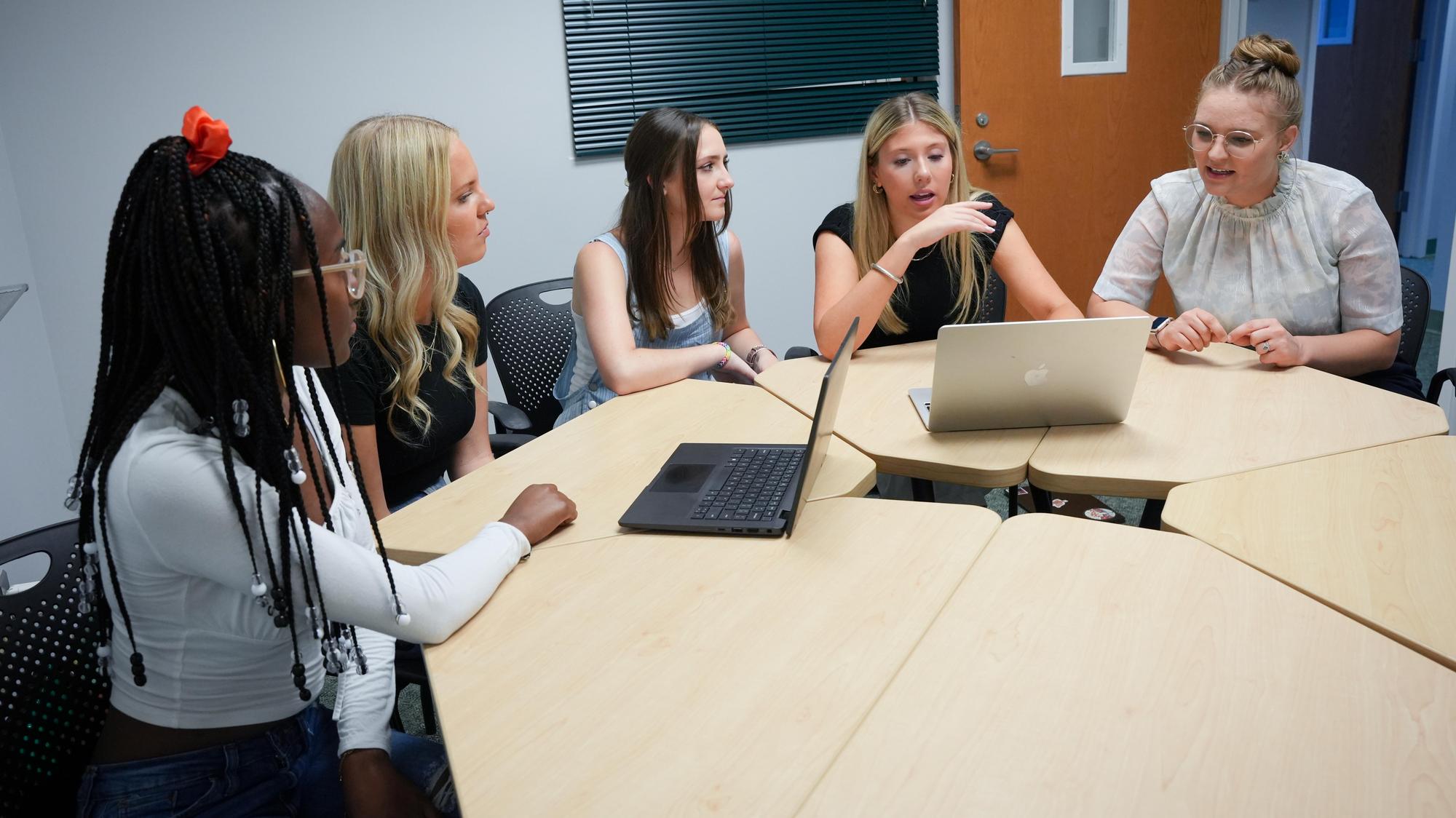How do parents talk to children about social inequality?

Led by Amanda Burkholder, an assistant professor of psychology, the students in Furman’s Development Lab have spent the last few months researching how different societal factors can affect how children learn about important issues from their parents. Recent studies have shown, for example, that Black parents talk to their children about race and racism very differently than white parents do, said Burkholder.
“It’s pretty well established that in sending messages to their kids about racial identity or racial inequality, overall white parents tend to use a ‘colorblind’ strategy, where they avoid talking about race or minimize the importance of inequalities,” she said – a dramatic contrast to “The Talk” that many Black parents give to help prepare their children for the realities of racism.
This summer, Burkholder and her team – Rose Beacham ’24, Maggie Belenky ’25, Emme Edwards ’24 and Sky Wright ’25 – are attempting to find out if similar dynamics exist in how parents talk to their children about economic social inequalities.
“It’s a really new topic in developmental psychology,” Burkholder said. “Research about how kids get socialized on different sorts of inequalities primarily exists with race, and a little bit with gender. There hasn’t been anything published yet about wealth, and so we’re wading into this new space with a big and broad project.”
‘Wealth-blind’ or ‘wealth-conscious?’
To investigate the socialization of economic inequalities, the researchers are using past research as a guide to create a survey of parents’ beliefs about the fairness of society’s economics and how and when they would discuss – or avoid discussing – those issues with their children.
“We used the general ideas from a previous study that was asking about colorblind messages,” said Belenky, a psychology major. “And we developed scenarios based on data from Dr. Burkholder’s previous studies on things that kids actually say or care about.”
For example, a child may ask a parent why one family takes nicer vacations or has newer clothes than another family. The survey presents several options for responses, including wealth-conscious statements that recognize economic inequalities and wealth-blind options that dismiss such systemic issues, as well as replies that attempt to deflect or justify the economic system. Parents choose the response they most closely agree with.
The researchers are recruiting survey respondents through posts on Facebook parents’ groups in all 50 states, said Belenky. Interested parents can have their children participate in a follow-up study to be interviewed on their own knowledge of and attitudes toward social inequalities.
The team is aiming to survey around 300 parents and interview 100 children from all rungs of the subjective social status (SSS) ladder, collecting demographic data on participants’ race, gender and political affiliation.
The research will continue into the 2023-2024 academic year, likely concluding in Spring 2024, said Burkholder – but there’s no telling what the data will ultimately reveal about how parents’ self-identified social status might relate to what they tell their children about social inequality.
“It’s hard for us to make a confident prediction, because the area is so new,” she said.
Collaborative, graduate-level research
They hope that their findings, once published, will benefit future developmental psychologists. But the work in progress this summer has already benefited the undergraduates, who are all planning graduate studies, said Burkholder.
“All of my students are doing master’s or Ph.D.-level work, not basic tasks like data entry or transcription,” she said. “I try to create an environment where we can have discussions and constructive debates. That’s so important in psychological research, and it’s just not usually afforded to undergraduates in other universities.”
“I needed to get a grasp on the research process in graduate school,” said Beacham, a psychology major minoring in Africana studies and an aspiring school psychologist. “This will definitely help my confidence in that respect, even if research is not what I want to do as a career.”
“I was not expecting to be able to have this much input and feel like we have ownership of the research,” said Belenky, who plans to get a Ph.D. in clinical psychology. “It’s been a dream, actually.”